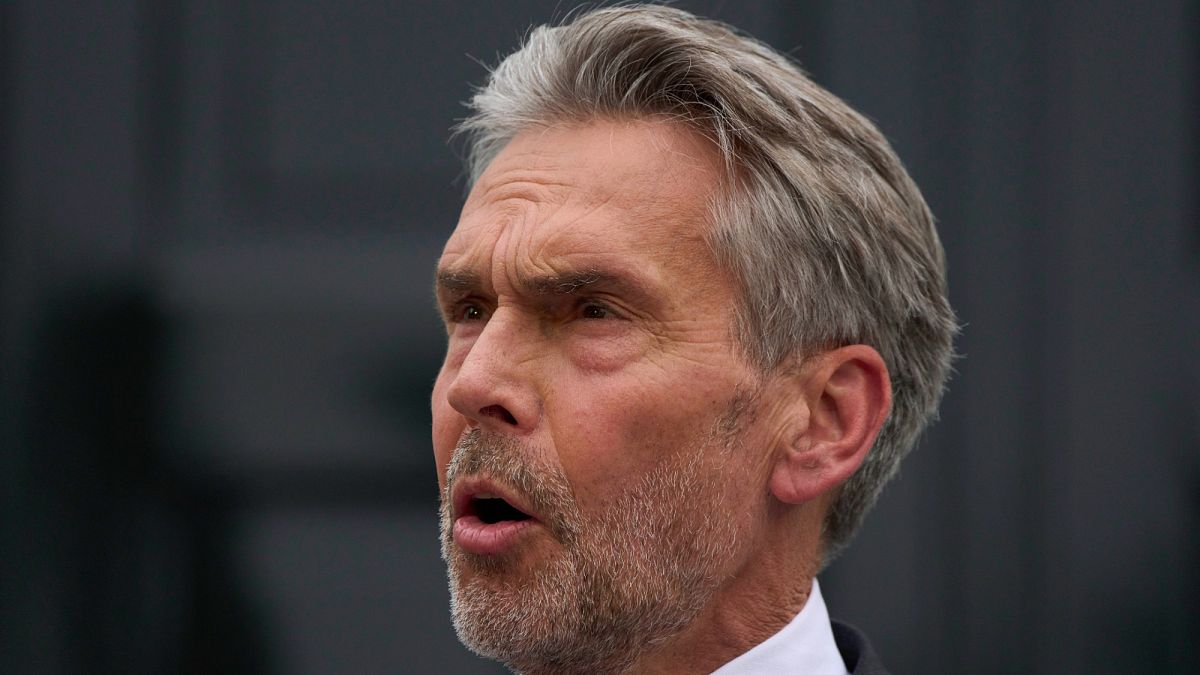By Euronews
Published on •Updated
Dutch Prime Minister Dick Schoof has stepped down on Tuesday following his coalition partner, far-right politician Geert Wilders’ decision to leave the government over a migration law dispute.
Schoof is expected to offer the resignation of the cabinet to King Willem-Alexander before the end of the day.
He slammed Wilders’ decision to leave the coalition as “irresponsible and unnecessary”.
“As far as I’m concerned, this shouldn’t have happened,” he said.
Schoof said the coalition government would serve as a caretaker administration until a snap election could be held, although no date has been set yet.
Wilders’ announcement earlier on Tuesday comes three weeks before the Netherlands is due to host a NATO summit in the Hague and was expected to spell the end of the 11-month-old government of Schoof.
Wilders confirmed the move in a social media post on X, saying he had taken the decision because his coalition partners were unwilling to agree to his migration plans.
“No signature under our asylum plans. The PVV leaves the coalition,” he wrote on Tuesday morning.
“I signed up for the toughest asylum policy and not the downfall of the Netherlands,” Wilders told reporters.
His coalition partners hit out at the move, with Dilan Yesilgöz, the leader of the VVD, saying she was “shocked” by the decision, which she described as “super-irresponsible”.
Caroline van der Plas, leader of the BBB, also expressed her disappointment.
“He is not putting the Netherlands first, he is putting Geert Wilders first,” she told Dutch broadcaster NOS.
Wilders presented a 10-point plan last Monday to radically reduce migration, putting pressure on the four-party coalition to toughen its migration policy or risk a cabinet crisis.
“The gloves are off,” Wilders said during a press conference to announce the plan, adding that his party would withdraw from the cabinet if migration policy was not toughened up.
The proposal called for a complete halt to asylum, as well as a temporary stop to family reunions for asylum seekers who have been granted refugee status, and the return of all Syrians who have applied for asylum or are in the Netherlands on temporary visas.
Wilders, who has long campaigned against immigration, also wanted to close asylum centres.
Opposition parties and activists have called for new asylum centres to be opened to prevent overcrowding and inhumane conditions for asylum seekers who need shelter.
Wilders’ PVV won a dramatic victory in the November 2023 national election, gaining 37 out of the House of Representatives’ 150 seats.
Despite the PVV becoming the largest party in the Dutch parliament, Wilders failed to secure the position of prime minister after resistance from other major parties.
The fragile right-wing coalition has been beset by problems, surviving crisis talks in November, when an NSC minister resigned after alleged racist comments were made by other cabinet members.

